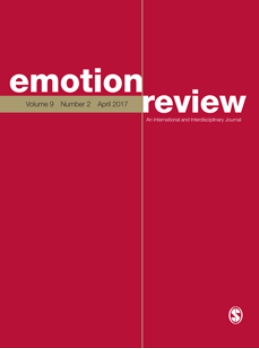从(故意)藐视到(法定)藐视:两种藐视与阿蒂米亚的刑罚
IF 3.4
2区 心理学
Q1 PSYCHOLOGY, MULTIDISCIPLINARY
引用次数: 1
摘要
蔑视和羞辱是密切相关的,这不仅在最近对这一主题的讨论中表现出来,而且在亚里士多德对司法中情感的调查中也表现出来。在这篇论文中,我将讨论古希腊人,特别是雅典城邦,通过对atimia(“耻辱”)的法律惩罚,将贝尔所说的“适当的蔑视”(即蔑视,作为对实际和严重的性格错误的回应,这种错误源于竞争者对所涉价值观的关注)制度化的方式。雅典的证据不仅证明了贝尔的观点,即蔑视可以是“恰当的”——它还代表了一个社区的早期案例研究,该社区在法律和集体批准的社会规范的正式制定中正式确立了这种“恰当的“蔑视。然而,希腊人也意识到“蔑视”和“羞辱”等概念的潜在矛盾心理。这种矛盾心理很可能是在atimia的语义领域内,在“羞辱”(atiman/atimoun)和“不尊重”(atimazein)之间——在“恰当”和“不恰当”的蔑视之间——催化分化的因素之一。本文章由计算机程序翻译,如有差异,请以英文原文为准。
From (Apt) Contempt to (Legal) Dishonor: Two Kinds of Contempt and the Penalty of Atimia
That contempt and dishonor are closely related has been shown not only in recent discussions of the subject, but also in Aristotle's investigation of emotions in the judiciary. In this paper, I will discuss the ways in which the ancient Greeks—and, in particular, the polis of Athens—institutionalized what Bell calls “apt contempt” (i.e., contempt as a response to actual and serious faults of character which stems from the contemnor's concern for the values at stake) through the legal penalty of atimia (“dishonor”). Not only does Athenian evidence prove Bell's point that contempt can be “apt”—it also represents an early case study of a community that formalized such “apt” contempt in law and in the formal enactment of collectively approved social norms. And yet, the Greeks were also aware of the potential ambivalence of notions such as “contempt” and “dishonor.” This ambivalence is likely to have been one of the factors that catalyzed a differentiation, within the semantic field of atimia, between “dishonoring” (atiman/atimoun) and “disrespecting” (atimazein)—between “apt” and “inapt” contempt.
求助全文
通过发布文献求助,成功后即可免费获取论文全文。
去求助
来源期刊

Emotion Review
PSYCHOLOGY, MULTIDISCIPLINARY-
CiteScore
6.60
自引率
3.70%
发文量
34
期刊介绍:
Emotion Review is a fully peer reviewed scholarly journal. It adheres to a blinded peer review process in which the reviewer"s name is routinely withheld from the author unless the reviewer requests a preference for their identity to be revealed. All manuscripts are reviewed initially by the Editors and only those papers that meet the scientific and editorial standards of the journal, and fit within the aims and scope of the journal, will be sent for outside review. Emotion Review will focus on ideas about emotion, with "emotion" broadly defined. The Review will publish articles presenting new theories, offering conceptual analyses, reviewing the literature, and debating and critiquing conceptual issues.
 求助内容:
求助内容: 应助结果提醒方式:
应助结果提醒方式:


